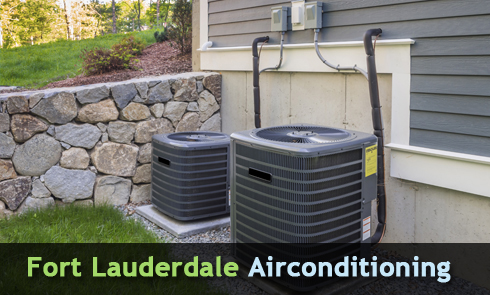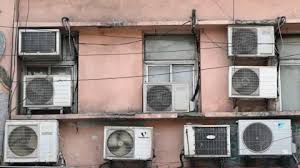Air conditioning systems are complex machines that require regular maintenance and occasional repairs to ensure optimal performance. However, even with diligent upkeep, emergencies can still arise unexpectedly.
Whether your AC suddenly breaks down, unusual noises emanate from the unit, or water leaks threaten your home’s integrity, being prepared to handle these situations can mitigate stress and minimize inconvenience. That’s where Emergency Air Conditioning Fort Lauderdale solutions can be handy, providing same-day relief from unexpected AC breakdowns.
In simple terms, knowing how to react promptly and effectively during an air conditioning emergency can make all the difference in restoring comfort to your home. Ahead in this blog, we’ll learn how to deal with air conditioning emergencies, providing expert tips and actionable advice confidently to navigate these challenging situations.
Common Air Conditioning Emergencies
Understanding the potential issues that can arise with your air conditioning system is the first step toward preparedness. Some of the most common emergencies include:
- System not cooling effectively: This could be due to various factors, such as a refrigerant leak, compressor failure, or clogged air filters.
- Strange noises coming from the unit: Unusual sounds like grinding, squealing, or banging may indicate mechanical issues requiring immediate attention.
- Water leaks or moisture buildup: Leaking water from your air conditioner can damage your home and may indicate issues with the condensate drain or refrigerant lines.
- Electrical issues: Tripped breakers, blown fuses, or sparking electrical components pose fire hazards and should be addressed promptly by Emergency Air Conditioning Fort Lauderdale professionals.
Preparation and Prevention
While some air conditioning emergencies are unavoidable, many can be prevented with regular maintenance and upkeep. Here are some proactive steps you can take to minimize the risk of emergencies:
- Clean or replace air filters regularly: Clogged air filters restrict airflow, reducing the efficiency of your system and increasing the likelihood of breakdowns.
- Inspect and clean the outdoor unit: Clear away debris, leaves, and other obstructions that can hinder airflow and cause the system to overheat.
- Schedule annual professional inspections: A qualified HVAC technician can identify potential issues early on and perform necessary repairs or adjustments to prevent emergencies.
- Keep the area around the indoor and outdoor units clear: Ensure ample space around the units for proper airflow and ventilation to prevent overheating and system malfunctions.
Immediate Action Steps
When faced with an air conditioning emergency, acting swiftly and decisively is essential to minimize damage and restore comfort to your home. Here’s what you should do:
- Turn off the system: If you notice any signs of trouble, such as unusual noises or water leaks, turn off your air conditioner immediately to prevent further damage.
- Check the thermostat settings: Ensure the thermostat is set to the correct temperature and mode, and try adjusting it to see if it resolves the issue.
- Inspect the unit: Look for any visible signs of damage, such as leaks, loose connections, or damaged components. Take note of any unusual odors or sounds that could indicate a more serious problem.
- Attempt basic troubleshooting: If it’s safe to do so, try troubleshooting the issue yourself by checking the circuit breakers, cleaning or replacing the air filters, and clearing any debris around the outdoor unit.
Troubleshooting Tips
If your initial attempts at troubleshooting fail to resolve the issue, here are some additional troubleshooting tips you may try:
- Check the circuit breakers: If your air conditioner isn’t turning on at all, check the circuit breakers to ensure they haven’t tripped. Reset any tripped breakers and try turning the system on again.
- Inspect the air filters: Dirty or clogged air filters can restrict airflow and reduce the efficiency of your system. Remove the filters and clean or replace them if necessary.
- Clear obstructions: Ensure no obstructions, such as leaves, branches, or debris, block the airflow around the outdoor unit. Clear away any debris and ensure the unit has adequate clearance on all sides.
- Check for refrigerant leaks: If your air conditioner is leaking refrigerant, it may not be able to effectively cool your home. Look for signs of leaks, such as puddles of refrigerant or oil around the unit, and contact a professional for repairs.
When to Call a Professional
While some air conditioning issues can be resolved with DIY troubleshooting, others require the expertise of a trained professional. Here are some signs indicating it’s time for Emergency Air Conditioning Fort Lauderdale services:
- Electrical issues: If you notice sparking, burning smells, or other signs of electrical problems, turn off your air conditioner immediately and contact a professional for repairs.
- Refrigerant leaks: Low refrigerant levels or leaks can prevent your air conditioner from cooling your home effectively and may indicate a more serious problem. Contact a professional HVAC technician to inspect and repair the leak.
- Strange odors: Unusual odors coming from your air conditioner, such as burning smells or musty odors, could indicate mold, electrical issues, or other problems that require professional attention.
- Persistent cooling problems: If your air conditioner is still not cooling your home effectively after troubleshooting, it’s time to call in Emergency Air Conditioning Fort Lauderdale experts. A professional HVAC technician can diagnose the problem and recommend the appropriate repairs to get your system back up and running efficiently.
Emergency Kit Essentials
In case of an air conditioning emergency, having the right tools and supplies on hand can help you handle the situation more effectively. Here’s what you should include in your emergency kit:
- Flashlight with extra batteries: In the event of a power outage, a flashlight can help you navigate your home safely and inspect your air conditioner.
- Duct tape: Duct tape can be used for temporary repairs, such as sealing leaks or securing loose components until professional help arrives.
- Spare air filters: Keep spare air filters on hand so you can quickly replace dirty or clogged filters and restore airflow to your system.
- Contact information for local HVAC professionals: Keep a list of Emergency Air Conditioning Fort Lauderdale services in your area so you can quickly contact them for help if needed.
Post-Emergency Maintenance
After resolving the air conditioning emergency, following up with proper maintenance is essential to prevent future issues. Here’s what you should do:
- Schedule a follow-up inspection with a professional: Even if you were able to resolve the issue yourself, it’s a good idea to have a professional HVAC technician inspect your system to ensure it’s functioning properly and identify any underlying problems that may need attention.
- Implement a regular maintenance schedule: To prevent future emergencies, schedule regular maintenance for your air conditioning system. It includes tasks like cleaning or replacing air filters, inspecting and cleaning the outdoor unit, and checking for signs of wear or damage.
- Consider enrolling in a preventive maintenance program: Many HVAC companies offer preventive maintenance programs that include regular inspections and tune-ups to keep your air conditioning system running smoothly. Consider enrolling in one of these programs to ensure your system receives the care it needs to stay in top condition.
Final Words
In conclusion, dealing with air conditioning emergencies can be stressful, but with the right knowledge and preparation, you can handle them like a pro. By following the expert tips shared in this blog, you can stay cool and comfortable even when your AC system decides to act up.
And remember, in case of a serious emergency, don’t hesitate to reach out to Emergency Air Conditioning Fort Lauderdale services for immediate assistance. With proper tools, know-how, and professional support, you can keep your cool no matter what challenges come your way.




